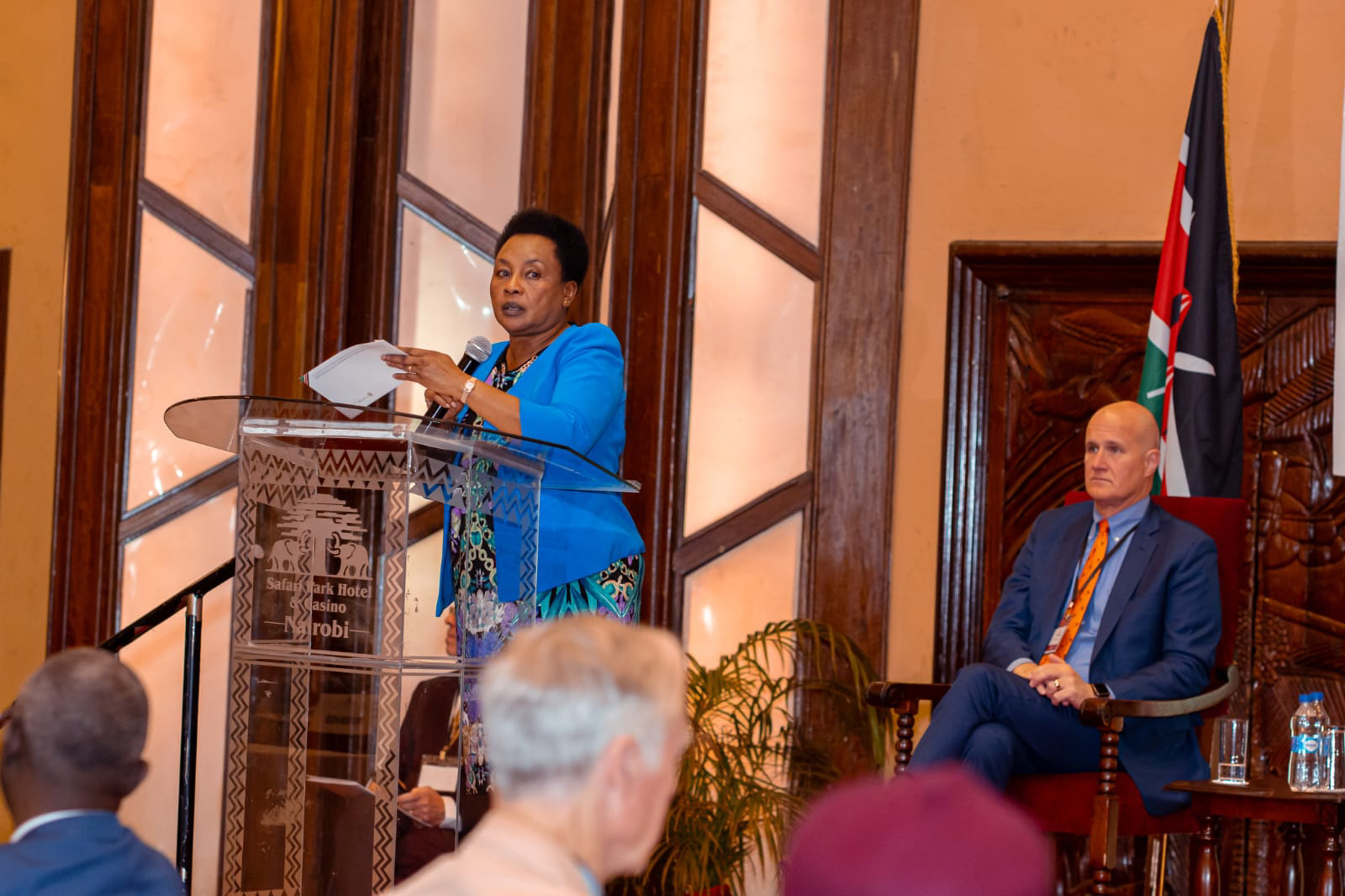NCCK ISSUES MEMORANDUM TO THE DIALOGUE COMMITTEE
The leaders of the National Council of Churches of Kenya (NCCK) have today issued a statement to the committee spearheading the bipartisan talks. In the statement read by the leaders, they commended the committee for the achievement they have made so far in the talks towards reaching an agreement that aims to bring political peace to the country.
"We commend your committee for the progress you have made in reaching agreement on the agenda for the bi-partisan consultative process that has been bestowed on you. We cannot gainsay the centrality of dialogue and consultations among Kenyans for promotion of peace and national cohesion".
The leaders urged the committee to put aside their interests and instead prioritize on the interests of the people of Kenya.
"Each of you should look not only to your own interests, but also to the interests of others.
It is for this reason that we have consistently called for structured and broadbased dialogue for Kenyans to have appropriate platforms to discuss the issues that affect the nation and find viable solutions." The statement read.
In addition, the National Council of Churches of Kenya, individually and in partnership with other faith institutions, has routinely addressed itself to this matter. According to the statement, the council as well observe the triple threats of rampant corruption, massive wastage in government, and unmanageable public debt as the primary drivers of poverty, high cost of living and the overall economic challenges facing the country.
The leaders noted that this has imposed on the citizenry a very heavy taxation burden in which the few who are engaged in formal employment and those with formal businesses bear the weight of the nation. Further, the perpetual growth in demand for financial resources by the state has been rising faster than the tax-paying base, resulting in a situation where the portion of income that Kenyans surrender to the state as tax increases each year. This trajectory as the council noted, is not sustainable.
The council also observed that there has been a rapid increase of fees in public institutions of higher learning, adding that this will only make education to be a preserve of the rich.
"We also do observe that this year, Kenyans are having to grapple with an instantaneous radical increase in fees charged by public institutions of higher learning. The new guidelines bear the potential of making education a preserve of the rich, which will negate the stated aspirations of the government to uplift the poor."
The statement further read that after the 2007-08 Post Election Violence which was driven by accusations of rigging in the elections, the Parliament established a Select Committee that oversaw the recruitment of the commissioners of the Interim Independent Electoral Commission. After the promulgation of the Constitution of Kenya 2010, the IEBC Act 2011 was enacted. It provided for the establishment of a broadbased panel to oversee the recruitment of IEBC commissioners. It was this panel that appointed Isaak Hassan as the Chairperson, enabling him to oversee the 2013 General Elections.
Following accusations that the IEBC had rigged the elections, the Isaak Hassan team was removed from office in 2016 and were replaced by the team led by Wafula Chebukati. On the heels of accusations of rigging the 2017 elections, 4 Commissioners resigned, and were replaced in December 2021.
At the tail end of the 2022 General Elections, the 4 new Commissioners dissented with the results set to be announced by Chairman Chebukati, and three of them subsequently resigned. One, Irene Masiit, was taken through a tribunal that recommended her removal from office. In January 2023, the term of office of Chairman Chebukati and the two other members came to an end.
In view of the vacancies of Commissioners, the National Assembly passed the IEBC (Amendment) Bill 2022, and it was assented to by President Ruto in January 2023. Thereafter, the IEBC selection panel was appointed as provided for in the Act. The Panel advertised the vacancies of the Commissioners and Chairperson of the Commission, and commenced the process of reviewing the applications received.
It is in this context, as the council noted that the Azimio la Umoja Coalition expressed dissatisfaction with the process, instead demanding a reconstitution of the IEBC away from the process outlined in the Act.
Nonetheless, the council strongly urged that the Committee does not recommend a process to amend the Constitution, and instead identify legislative and policy measures to address the issues set out in the agenda.
The statement was signed today at Ufungamano House, Nairobi, on behalf of the Member Churches and Organizations of the National Council of Churches of Kenya.
The Council endeavours to fulfill the Vision “One Church; United in Faith and Mission witnessing to Jesus Christ and Transforming lives”, being guided by the Mission: “Holistic transformation of lives for a just, resilient and sustainable society”.




Comments
Post a Comment